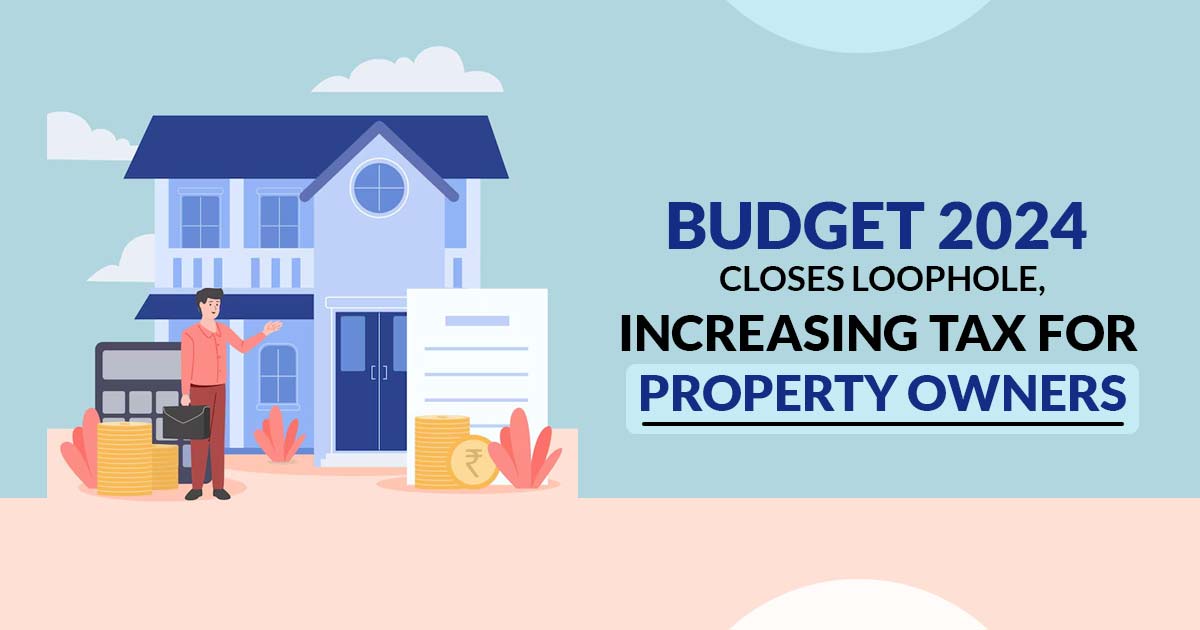
A crucial amendment in the taxation of the rental income from the residential property is been introduced in the Union Budget 2024. Finance Minister Nirmala Sitharaman to curb tax evasion has obligated that this income could merely be declared under the ‘Income from House Property’ (IHP) head and not under the ‘Profits and Gains from Business or Profession’ (PGBP) category.
Under “Income from House Property” the available deductions are distinct from those under “Profits and Gains from Business or Profession.” You can claim the standard deduction of 30 per cent of rental income, property tax, and interest on a home loan, under IFHP. You could claim all expenses pertinent to renting and managing the property like maintenance, electricity bills, employee costs, and upkeep, without any limit under PGBP.
Certain assessees were manipulating a loophole by declaring their rental income as business income which permitted them to avail the other deductions such as repairs and depreciation, consequently diminishing their taxable income. The same practice has now been restricted.
Rental Income Taxation in India:
- Under the head “income from house property” the rental income would get levied to tax, If you own a property and rent it out. It directed that there are particular rules and deductions applicable to the same sort of income.
- You are enabled to claim deductions such as standard deduction (30% of gross rental income), municipal taxes, and interest on home loans against this income.
- If you run a business via your property like a hostel then the income via the business is levied to tax under “Profits and Gains from Business or Profession.” But any residential part of the property shall still get levied to tax under “Income from House Property.
Before that, some taxpayers have notified their income via residential property as business income rather than the income from the house property. The major difference is a tax regime for the income via house property furnishes for a fixed set of deductions as against the business income in which one can claim any amount of expenses as deductions (so long as it can be justified). It directed to the loss of revenue for the government based on higher deductions that have been available for the assessee proposing this income as business income.
Read Also: Easy to Compute Rental Income in Property for Tax Purposes
When an assessee poses the income via house property then he is within certain fewer deductions like municipal taxes, a fixed percentage of standard deduction, and interest on borrowed capital. For these rental income when the taxpayer utilises the business income schedule then he can avail the advantage via taking certain additional deductions via the same income like repairs undertaken or even depreciation on furniture, fixtures, etc, thereby lowering their taxable income.
The same revisions will come into force from April 1, 2025, and will apply to the AY 2025-26 and forthcoming years. This income would merely be permitted to get taxed under the head of the income from the house property. Therefore the taxpayer shall be qualified for the lesser deductions like municipal taxes, standard deduction, and eligible interest payment of loans.
The same step is identical to the anti-avoidance measure that has the objective of lessening the tax dispute emerging from the complexities and drawing clarity for the individuals in availing the easier tax treatments.
The same move has the objective of ensuring fair taxation, it can directed to higher tax outgo for the property owners as deductions under the income from house property are restricted compared with those available under ‘Profits and Gains from Business or Profession’.